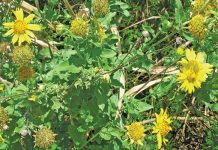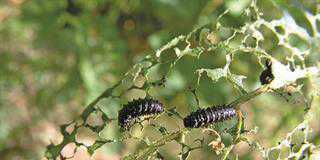Before planting your tomato crop, find out which diseases are most likely to occur in your area at that time. You need to know what causes the disease, how it spreads, what parts of the plant it infects and what environmental conditions – heat, rain and so on – the disease likes.You must also know what to look for when inspecting your plants to spot the “infection” early on.Knowing what to look out for means
you can put proper control measures in place to prevent or eliminate disease. When you know what you’re up against, you can select cultivars that are resistant to these diseases.Factors that encourage strong, active growth and will help you avoid diseases include selecting your site and planting times carefully, crop rotation, irrigation practices, good general sanitation, and good nutrition. At the very least, they’ll lessen the chances of infection and reduce the impact of disease, should they occur.
You can also use chemicals. Most only have a preventative action as they stop diseases from occurring, but can’t “heal” heavily infected plants. When used regularly, they work by depositing a protective layer on the plant to prevent infection.Where light infection has occurred, some chemicals can stop or reduce the spread of the disease to healthy plant parts.Many diseases attack tomatoes in South Africa. One is powdery mildew (Oidopsis taurica). It often strikes when drip irrigation at the base of the rows is increased. Look for small light-green to yellow areas with spots on the upper surface of the leaves, and a light grey mould on the lower surface. Severely infected leaves die, but don’t necessarily drop off the plant.
Commercial cultivars are vulnerable to powdery mildew. Rotate with crops other than tomatoes. If you see signs of the disease, spray several times to prevent its spread.Source: KwaZulu-Natal Department of Agriculture. For more information contact 033 355 9100. |fw












